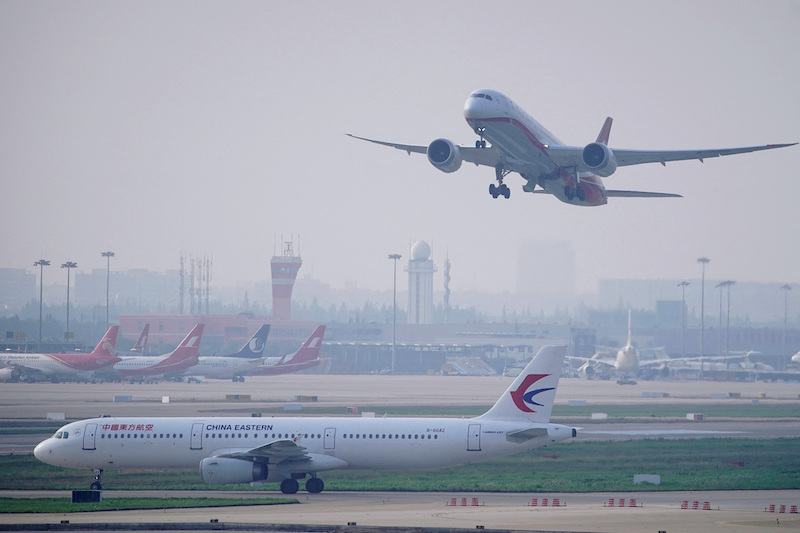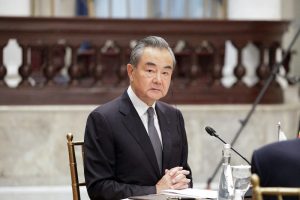Labour shortages and supply chain snarls are making it harder for airlines and leasing companies to get planes that were grounded during the pandemic back into the air, airlines and maintenance providers say.
A global squeeze on maintenance, repair and overhaul (MRO) capacity is one of the factors contributing to higher airfares for travellers, as demand has rebounded faster than aircraft can be made available and costs are rising.
“Some suppliers are coming out with double-digit escalations and surcharges,” Mahesh Kumar, chief executive of Asia Digital Engineering, the maintenance arm of Malaysian budget carrier AirAsia, said.
“The airlines keep increasing their fares but that is not a sustainable business,” he added at the MRO Asia-Pacific conference in Singapore.
Complications of that kind mean that just about 110 of AirAsia’s fleet of 200 planes have returned to service, he added.
Yet getting the rest back in the air is challenging because of the scarcity of MRO slots that also drives up their prices.
The maintenance and repair bottlenecks have been compounded because airlines returned planes to lessors at a much higher rate than usual during the pandemic, which crushed travel demand.
ALSO SEE:
Struggle to Meet Surge in Customer Demand
Aircraft being used by a new airline need maintenance checks, cabin interior changes and livery repainting by companies that are often short-staffed after pandemic lay-offs of workers. They are also facing delays at parts suppliers struggling with similar woes.
“We’ve had real issues with the number of paint shops that can take aircraft and in addition to that, the inability of some of the paint shops to get some of the specialist paint,” Robert Martin, chief executive of aircraft lessor BOC Aviation, said.
“If you’ve got some logo on the back of the aircraft with multiple colours, if you are missing one colour, that’s a bit of a problem.”
Now it takes about three months to make the changes required to shift a narrow-body plane from one customer to another, up from one before the pandemic, Martin explained.
Hangar capacity and workers were not sufficient to meet customer demand, said Jeffrey Lam, commercial aerospace president of Singapore Technologies (ST) Engineering.
“The ST Engineering network, we are full and so customers are always asking for more slots,” he said. “We have operations in the United States, Europe, China and Singapore. Apart from China, all of our operations are facing labour challenges.”
The strong demand is driving up labour costs as maintenance and repair firms compete for staff and available workers are being asked to do more overtime, Lam said.
“We don’t want to too much overtime, because you have concerns around safety and quality,” he said. “We wish we could add more labour and take on more work. So we are worried about schedules, redelivery schedules, costs and all that.”
Lessor BBAM has not had much success getting MRO slots this winter, leaving out in the cold some airline customers who sought planes quickly to meet demand in next year’s summer peak, said Patrick Low, its vice president for technical matters.
“The speed of recovery is really determined about whether we can get MRO slots,” he said. “I think the earliest an MRO is telling us is, come back June next year, possibly we have slots for you.”
Hong Kong Loses Hub Status
Meanwhile, The strength of the overall recovery in global airline passenger demand will be impacted if China continues to enforce tight border restrictions next year, the head of airline body IATA said on Wednesday
International Air Transport Association director-general Willie Walsh told a conference in Doha that China’s zero-Covid policy had “devastated” Hong Kong, and caused it to lose its position as a global aviation hub.
Walsh was speaking at a conference in Doha organised by the (IATA).
Hong Kong, traditionally a major hub where passengers transit between international flights and on journeys to China, is the base of airline Cathay Pacific.
- Reuters with additional editing by Jim Pollard
ALSO SEE:
China’s Homegrown Airliner Nearly Ready for Take-off
Fragile Air Travel Recovery Skids on Jet Fuel Price Surge
























